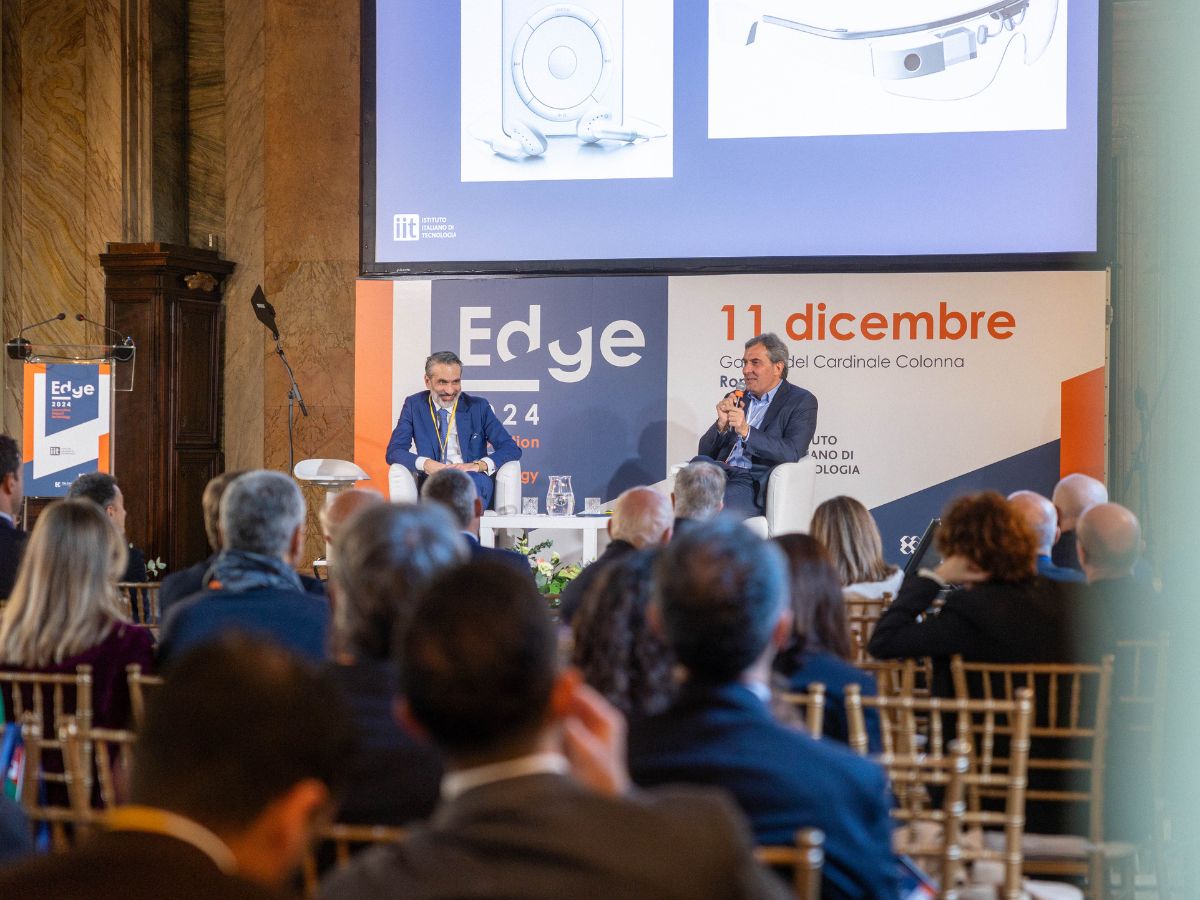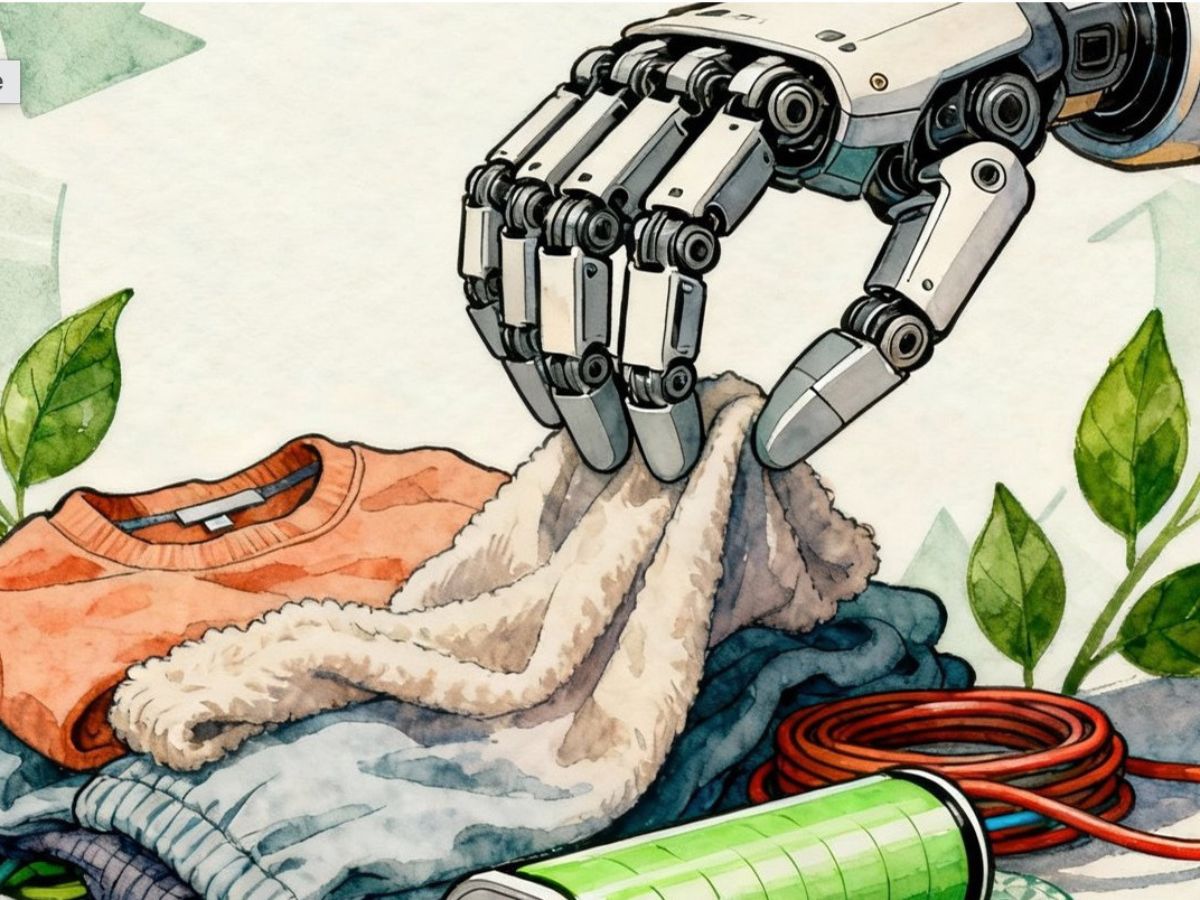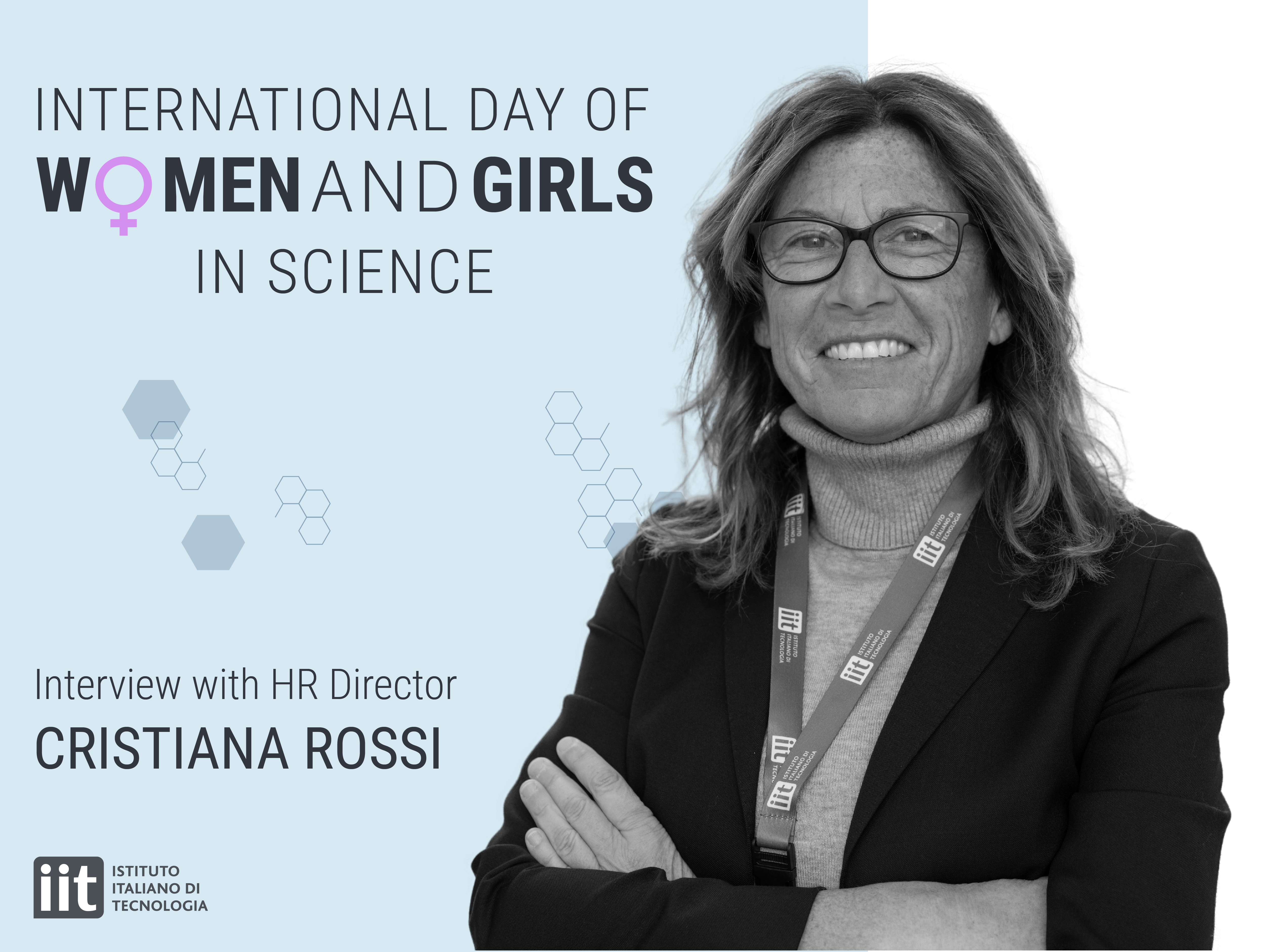The Industrial Liaison Program (ILP) is a practical tool designed to optimise interaction between the industrial sector and the world of technological innovation generated by IIT, with the objective of creating a competitive advantage for the nation
Today, IIT’s Industrial Liaison Program, a project unique in its field in Italy, was presented during EDGE 2024 – Innovation, Impact, Technology, an event organised by Istituto Italiano di Tecnologia and dedicated to technology transfer.
EDGE 2024, now at its second edition, focused specifically on the importance of relations between science, industry and enterprise as a way of fuelling Italy’s economic infrastructure and improving citizens’ wellness.
Speakers at the event included Gabriele Galateri di Genola, President of Istituto Italiano di Tecnologia; Andrea Montanino, Chairman of the Board, IIT; Marcella Panucci, Advisor to the Minister, MUR (Ministry of University and Research); Mario Ciampi, Deputy Chief of Staff, MIMIT (Ministry of Enterprise and Made in Italy); Alberto Gusmeroli, President of the 10th Commission, Chamber of Deputies; Giorgio Metta, Scientific Director of the Istituto Italiano di Tecnologia; Mario Calabresi, journalist and writer; Lorenzo De Michieli, Director of the IIT Technology Transfer Directorate; Andrea Crottini, Director of Technology Transfer, EPFL (Swiss Federal Technology Institute of Lausanne); Mauro Battocchi, Director General for the Promotion of the National Economic System, MAECI (Minister of Foreign Affairs and International Cooperation) and Claudia Pingue, Manager of the Technology Transfer Fund, CDP Venture Capital SGR.
The Industrial Liaison Program is a new project by Istituto Italiano di Tecnologia, designed to build solid, durable links between the world of research and the industrial sector. With a flexible, modular approach, the programme is open to large and medium-sized companies, creating a bridge between the advanced technology developed within IIT’s laboratories and the corporate sector’s need for innovation. The ILP’s principal objectives comprise facilitating companies’ access to areas of advanced technology, promoting new connections, and encouraging the development of the skills necessary to meet the challenges of innovation. This ambitious programme is based on three fundamental pillars: technology, skills and relations, with the objective of transforming scientific discoveries into tangible competitive advantages for Italy’s industrial infrastructure.
“For all of us at IIT, launching the Industrial Liaison Program was an absolute necessity,” said Lorenzo De Michieli, Director of the Istituto Italiano di Tecnologia Technology Transfer Directorate. “Working in close contact with the country’s most brilliant minds, we are well aware of how many opportunities remain concealed within research laboratories, and to what degree these opportunities are overlooked by the enterprise system. In most cases, this occurs simply because there is no communication between these two sectors, or because communications are not performed with the required degree of efficacy. The ILP is a tool designed specially to bridge this gap.”
The project emerged from IIT’s Technology Transfer Directorate, utilising systems that included a Design Thinking process, involving external consultants, researchers, IIT staff, and personalities from about twenty companies and national organisations with notable aspirations for innovation. It also comprised the study of existing international models of success. In fact, the first Industrial Liaison Program of this type was launched by the Massachusetts Institute of Technology (MIT) in 1948, and today it comprises over 240 affiliated companies all over the world.
More specifically, a pilot project for the Industrial Liaison Program will be launched in 2025, initially involving a limited number of companies, with the objective of implementing the project on a larger scale.
For each company, the process will begin with official programme membership. This step will comprise a phase of initial consulting and profiling, during which the company and IIT will discuss strategic objectives, the areas of technology concerned, and the results expected from the partnership.
Affiliation will require the payment of a fee, and by necessity, it will have a modular structure. Once the programme is up and running, each company’s affiliation will be annual and renewable.
A Liaison Officer will be assigned to each company, representing the primary point of reference in relations with IIT. The roles of the Liaison Officer will include working with the company to identify its needs, assessing the opportunities presented by cooperation with IIT’s researchers, and the ongoing promotion of research partnerships, joint projects and other forms of collaboration that could generate benefits for the respective company and IIT. In addition, every company will be offered a process of targeted technology scouting, and a Liaison Officer will help affiliated companies to navigate IIT’s research and innovation ecosystem. Meetings with researchers will be organised to present specific areas of technology, assessing their relevance to a company’s themes of interest, their industrial feasibility, and how a cooperation between IIT and the company could be activated on the topic thus identified.
The ILP will also organise a series of plenary meetings for top management and executive staff personalities in the area of innovation. Affiliated companies will be invited to take part in these meetings to update their familiarity with the state of research and to construct relations facilitating the creation of strategic partnerships. Events and workshops will focus on IIT’s areas of technology and themes linked to innovation, with talks by guest speakers and guided tours of IIT’s laboratories, institutions and affiliated companies.
In addition, each company will be able to mobilise specific content areas within a range of possible activities, including Industrial Secondment, in which company employees are hosted at IIT for a limited period of time to perform scouting activities on themes of corporate interest, and Reverse Mentoring, in which IIT’s researchers help companies to better understand the potential and industrial applications of the areas of technology on which they are working.
“I am sure that projects such as the plans presented today will represent the first step in bringing companies into closer contact with research laboratories, and vice versa,” said Giorgio Metta, IIT’s Scientific Director. “With 37 start-ups founded, over 1,300 patents filed, 11 laboratories working in collaboration with major companies, and 900 trade agreements, IIT is an example of how there are many possible forms of interaction with the world of industry, all of which are important for providing new impetus for Italy’s national system and its increasingly competitive standpoint.“






